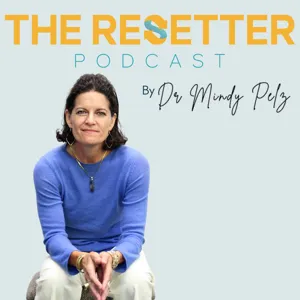Podcast Summary
The enduring power of belief and community: Belief and community have the power to connect us and shape our lives, whether through shared experiences or ancient traditions. Let's strive to build and strengthen these connections.
No matter where or when we are, we will always find ways to connect with each other and build communities. Whether through volunteering with organizations like Neighbor to Neighbor or through shared experiences like listening to podcasts, we can foster meaningful relationships and support each other. And even in the far reaches of the future, religion and belief will continue to evolve and shape our communities. For instance, in Frank Herbert's Dune, the Orange Catholic Bible represents an accumulation of ancient religions, including Christianity, Catholicism, Buddhism, and Islam, with the supreme commandment being "thou shalt not disfigure the soul." This idea of the enduring power of belief and community is a powerful reminder that we are all connected, and that we can find hope and strength in the people around us. So, let's strive to build and strengthen our communities, whether through volunteering, listening to podcasts, or simply being there for each other.
The Role of Religion in Space Exploration: Religion's role in space exploration is debated, with some advocating for science-only focus and others for a spiritual perspective. Historical examples exist of religious artifacts and practices in space.
The relationship between science and religion in space exploration is a complex and debated topic. Some argue that science should be the sole focus, leaving religious beliefs behind. However, others believe that a science-based religion, or a selective adoption of spiritual beliefs, could coexist and even enhance our understanding of the universe. History shows that religious artifacts and practices have already made their way into space, with examples like Buzz Aldrin's communion on the moon and the Russian Federal Space Agency's cache of religious items on the International Space Station. Ultimately, the role of religion in space exploration remains a personal and subjective decision, reflecting the human desire to explore both the physical and spiritual realms of the universe.
Religious practices and relics in space: Space agencies accommodate religious practices and relics in space travel, including dietary restrictions and observing rituals, without affecting mission objectives
As space travel becomes more accessible, various religious practices and relics are making their way into space. For instance, there are religious artifacts, such as pieces of the true cross, believed to be in space. Space agencies have accommodated dietary restrictions, like kosher food in space menus for Jewish astronauts. There have also been experiments and discussions on observing religious practices in space, such as praying in the direction of Mecca for Muslims. These practices and relics do not seem to interfere with the mission itself and are seen as a way to accommodate individual beliefs and comfort in the unique environment of space travel.
Understanding the Complex Relationship between Science and Religion: Despite challenges, recognizing and addressing complexities can help ensure scientific progress isn't hindered by religious or political agendas.
Religion and science can present challenges when it comes to coexisting, particularly in societies where funding for scientific endeavors is tied to political groups or religious beliefs. Nobel Laureate and physicist Steven Weinberg pointed out that in the West, there is often a confusion about what science is, which can hinder progress in scientific fields like space exploration. He noted that in countries like China, there is less debate about pursuing scientific endeavors despite religious beliefs, as their funding is not politically tied. However, Varadarajan Raman, a professor of physics and humanities at the Rochester Institute of Technology, suggests that part of the problem may be linguistic. In the English language, the word "why" can have two meanings: cause and effect. Raman argues that understanding this distinction could help bridge the gap between science and religion. In Islamic tradition, it is acceptable to pray in the direction of Earth or wherever, even in space, as long as the prayers are in line with the passing of hours on Earth. These complexities make it difficult to intertwine the two, and it's important to recognize and address these complexities to ensure scientific progress is not hampered by religious or political agendas.
The overlap of scientific and philosophical inquiries: While science and religion may have differing perspectives on the 'why' question, their shared curiosity and desire for knowledge can lead to collaboration and deeper understanding of the world.
Despite the semantic differences and potential conflicts between science and religion when it comes to understanding the universe and our place in it, there is a shared curiosity and desire for knowledge and discovery. This was highlighted in the discussion about the meaning of the "why" question and the fascinating overlap between scientific and philosophical inquiries. However, the practical implications of these ideologies can lead to significant differences, particularly in terms of funding for scientific research. Weinberg's concerns about the future of science in America due to budget cuts underscore the importance of ongoing dialogue and collaboration between these fields. A notable example of this is Brother Guy Consolmagno's work in planetary exploration and ethics, which demonstrates that religious perspectives can contribute to scientific inquiry rather than hindering it. Ultimately, the ongoing conversation between science and religion, and the potential for collaboration, offers the opportunity to deepen our understanding of the world and our place in it.
Mormon theology and NASA's James C. Fletcher: Mormon beliefs in a universe filled with 'worlds without number' and acceptance of extraterrestrial life influenced NASA administrator James C. Fletcher's drive for space exploration. Religious instruments like the Astrolabe also played a role in scientific advancements.
Religion and science have intersected in significant ways throughout history, particularly in the realm of space exploration. An intriguing example is the influence of Mormon theology on NASA administrator James C. Fletcher during his tenure from 1971 to 1977 and 1986 to 1989. Fletcher's devout faith in the Church of Jesus Christ of Latter-day Saints, which includes the belief in a universe filled with "worlds without number" inhabited by intelligent beings, fueled his drive for space exploration. This contrasts with some traditional Christian religions that do not include extraterrestrial life in their theology, requiring a reinterpretation or "retcon." The Mormon faith's emphasis on exploration and frontierism, as well as its acceptance of extraterrestrial life, further supported Fletcher's vision. Another example is the Astrolabe, an ancient navigational instrument developed by Muslim cosmologists to help determine the direction of Mecca and celebrate religious holidays. Its refinement over centuries contributed to the Age of Discovery, and there are parallels to space exploration in this context. These examples illustrate how religion can inspire scientific advancements and broaden our understanding of the universe.
Discovering Extraterrestrial Life and Religious Beliefs: Despite the discovery of extraterrestrial life potentially challenging certain religious assumptions, most believers across traditions remain confident in their faith.
The discovery of extraterrestrial life may not necessarily shake religious beliefs as deeply as one might expect. While some individuals may experience a crisis of faith, the majority of religious believers, across various traditions, expressed confidence that their beliefs would not collapse in the face of such evidence. Furthermore, the study found that non-religious individuals were more likely to believe that aliens would sway the faith of religious people as a whole. Ultimately, people's beliefs, whether religious or not, act as personal worldviews that are shaped by individual experiences and interpretations. The discovery of extraterrestrial life may challenge certain assumptions, but it is unlikely to shatter the foundations of people's beliefs entirely.
The importance of beliefs and worldviews, including religious ones, in providing a sense of balance and comfort.: Even when faced with scientific discoveries that challenge our beliefs, we often find ways to adapt and reconcile the contradictions, illustrating our capacity for cognitive adaptation.
Our beliefs and worldviews, including religious ones, act as a foundation for understanding reality and providing a sense of balance and comfort. Even in the face of new scientific discoveries that challenge these beliefs, we often find ways to adapt and reconcile the contradictions. The example of the sacred pole from Australian Aboriginal myth illustrates this idea, as it represents a cosmic axis that makes territory habitable and provides direction. The breaking of the pole is seen as a catastrophe, symbolizing the end of the world and a reversion to chaos. This need for a center or belief system is universal, and for many, it is God or another deity that fulfills this role. However, it's important to remember that these beliefs can also provide comfort and solace in times of uncertainty. The discussion also touched on the idea that even seemingly hard-to-reconcile beliefs can be tweaked to fit new scientific discoveries, demonstrating the human capacity for cognitive adaptation.
The Importance of Letting Go of Beliefs: Beliefs provide direction but are subject to change, considering different perspectives and scientific advancements is crucial, and progress can be measured in unexpected ways.
Our attachment to our beliefs and ideas, represented by the poll in the discussion, can provide us with a sense of sanity and direction, but it's important to remember that these beliefs are subject to entropy and will eventually break. This was highlighted in the anecdote about Neil deGrasse Tyson and the person suggesting using the idea of Jesus existing in an alternate universe to secure funding for science exploration. Additionally, the discussion touched upon the importance of considering different perspectives and the potential implications of scientific advancements, as seen in the example of the movie "Gattaca." Finally, Rick's listener mail added an interesting perspective on how a civilization's relationship with excrement can be used as a measure of its progress.
Exploring perspectives and choices in life and beyond: From religious buffets to efficient work tools, we adapt and find solutions to enhance our daily lives. Community, productivity, and simplicity are key themes.
Our perspectives and choices shape the way we navigate through life, much like how high heels allow us to elevate ourselves above certain situations. This concept was explored in the discussion about the future of religion, with the suggestion of a religious buffet or a strict dogmatic religion for space travel. The importance of community and connection was also emphasized through the introduction of Neighbor to Neighbor, a volunteer network that empowers individuals to build stronger relationships with those around them. Additionally, the need for efficiency and productivity in growing businesses was highlighted through the mention of Slack, a platform that brings together work, data, and communication in one place. Lastly, PNC Bank's approach to banking as being "boringly brilliant" emphasizes the importance of simplicity and reliability in managing finances. Overall, the conversation touched on various topics, but the underlying theme was the importance of adapting and finding solutions to enhance our daily lives.






